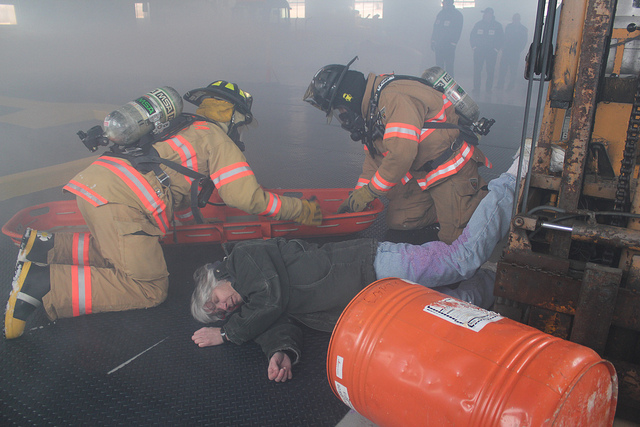Homeland security: what should the Abbott Government do?
 The incoming Australian Attorney-General George Brandis’ top priority is the elimination of what he views as a ‘left-wing control of the human rights debate’. And he plans to conduct a national audit of federal statutes that infringe common law rights as a first step to restoring these freedoms, when appropriate. However, Senator Brandis hasn’t said much to date about operational security issues. That’s despite the fact that matters relating to domestic intelligence, counterterrorism, cyber security, emergency management and serious and organised crime fall under the Attorney-General’s portfolio. The Attorney-General has around 60 portfolio responsibilities. About half are directly relevant to homeland security. That’s why I’ve argued that creating a Minister for Security and Resilience at Cabinet level would provide unity of command in areas related to counterterrorism, organised crime, cyber security and emergency management.
The incoming Australian Attorney-General George Brandis’ top priority is the elimination of what he views as a ‘left-wing control of the human rights debate’. And he plans to conduct a national audit of federal statutes that infringe common law rights as a first step to restoring these freedoms, when appropriate. However, Senator Brandis hasn’t said much to date about operational security issues. That’s despite the fact that matters relating to domestic intelligence, counterterrorism, cyber security, emergency management and serious and organised crime fall under the Attorney-General’s portfolio. The Attorney-General has around 60 portfolio responsibilities. About half are directly relevant to homeland security. That’s why I’ve argued that creating a Minister for Security and Resilience at Cabinet level would provide unity of command in areas related to counterterrorism, organised crime, cyber security and emergency management.
My colleague David Connery and I recently suggested that a new minister for security and resilience should have two parliamentary secretaries. Given that we’re likely to see more frequent and intense weather events, one could assist on emergency management. The other could be a parliamentary secretary for cyber security. This would allow the Attorney-General to focus on the administration of justice and strengthen the traditional role of the Attorney as the commonwealth’s first law officer (PDF).
In the area of disaster resilience, the only mention in the Liberal Party’s policy blueprint Real Solutions is better and faster deployment of search dogs (on page 43). However, I’d argue that when it comes to disaster resilience, it’d be better to focus on disaster mitigation. We’re too focused on the response and recovery side of disaster management. Mitigation should be a key part of Canberra’s micro-economic reform program: research puts the return on such investments at 15%. And it could be much more.
As a lifesaver and volunteer firefighter, Prime Minister Tony Abbott understands the importance of volunteers in emergency response. Capacity-building with volunteers provides a great potential approach to building community resilience, but we need to try harder to attract and retain them.
The Coalition promised during the election campaign that health spending wouldn’t be cut. That’s particularly important in the area of health preparedness for disasters. We pay too little attention to the problems of medical ‘surge’, avoiding emergency department overcrowding, and conducting rigorous no-notice disaster drills in hospitals to test our ability to handle a large number of casualties.
In the area of counterterrorism, it’s not clear what direction the new government will take; its pre-election policy simply states that it’ll deliver improved counterterrorism and domestic security measures in Australia and secure our ports and airports.
I’d suggest that one area that the new government might focus its efforts on is online radicalisation. Young people don’t always have the skills to evaluate online content. The Coalition’s announced it’ll establish a Children’s e-Safety Commissioner (PDF) to take a national leadership role in online safety for children. The e-Safety Commissioner is well-placed to work with school authorities to consider violent extremism part of the instruction on cyber safety issues.
We can’t assume that because the terrorism threat has lowered, we don’t need the laws that contributed to getting us to that happier place. Telecommunications interception provides vital support to intelligence and law enforcement. But we’ve got old legislation for old technology. The new government should modernise the legal framework here as a matter of priority. But, as Kristy Bryden’s argued here on The Strategist, that should be done with greater transparency than we’ve seen to date.
Additionally, we need to focus much more on transnational and organised crime as a strategic threat. More than two-thirds of the organised crime bosses listed as the greatest threats to Australia by the ACC are located overseas. The incoming government has promised (PDF) to post detectives from China, Indonesia, Malaysia and Lebanon into the ACC, with reciprocal placements of Australian detectives overseas. Given that international cooperation is critical in fighting organised crime, this suggestion is sensible. Although, if what’s intended is seconding only state police, that would be too restrictive: it should include ACC representatives as well. The overseas police liaison role now rests with the AFP. As you’d expect, they’re more focused on operational matters, less on strategic intelligence gathering.
Any ACC overseas role will require cooperation between the ACC and AFP. The AFP has mature processes and systems necessary to support overseas deployments. These could be leveraged to support extra people in overseas posts in the area of strategic crime intelligence.
Anthony Bergin is the deputy director of ASPI. Image courtesy of Flickr user U.S. Army Corps of Engineers.